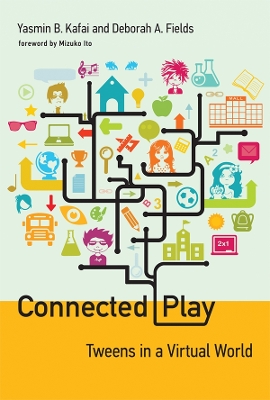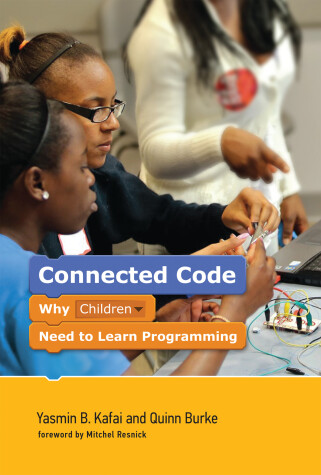The John D. and Catherine T. MacArthur Foundation Series on Digital Media and Learning
3 total works
How kids play in virtual worlds, how it matters for their offline lives, and what this means for designing educational opportunities.
Millions of children visit virtual worlds every day. In such virtual play spaces as Habbo Hotel, Toontown, and Whyville, kids chat with friends from school, meet new people, construct avatars, and earn and spend virtual currency. In Connected Play, Yasmin Kafai and Deborah Fields investigate what happens when kids play in virtual worlds, how this matters for their offline lives, and what this means for the design of educational opportunities in digital worlds.
Play is fundamentally important for kids' development, but, Kafai and Fields argue, to understand play in virtual worlds, we need to connect concerns of development and culture with those of digital media and learning. Kafai and Fields do this through a detailed study of kids' play in Whyville, a massive, informal virtual world with educational content for tween players. Combining ethnographic accounts with analysis of logfile data, they present rich portraits and overviews of how kids learn to play in a digital domain, developing certain technological competencies; how kids learn to play well-responsibly, respectfully, and safely; and how kids learn to play creatively, creating content that becomes a part of the virtual world itself.
Kafai and Burke point to recent developments that support a shift to game making from game playing, including the game industry's acceptance, and even promotion, of "modding" and the growth of a DIY culture. Kafai and Burke show that student-designed games teach not only such technical skills as programming but also academic subjects. Making games also teaches collaboration, as students frequently work in teams to produce content and then share their games with in class or with others online. Yet Kafai and Burke don't advocate abandoning instructionist for constructionist approaches. Rather, they argue for a more comprehensive, inclusive idea of connected gaming in which both making and gaming play a part.
Why every child needs to learn to code: the shift from "computational thinking" to computational participation.
Coding, once considered an arcane craft practiced by solitary techies, is now recognized by educators and theorists as a crucial skill, even a new literacy, for all children. Programming is often promoted in K-12 schools as a way to encourage "computational thinking"-which has now become the umbrella term for understanding what computer science has to contribute to reasoning and communicating in an ever-increasingly digital world.
In Connected Code, Yasmin Kafai and Quinn Burke argue that although computational thinking represents an excellent starting point, the broader conception of "computational participation" better captures the twenty-first-century reality. Computational participation moves beyond the individual to focus on wider social networks and a DIY culture of digital "making."
Kafai and Burke describe contemporary examples of computational participation: students who code not for the sake of coding but to create games, stories, and animations to share; the emergence of youth programming communities; the practices and ethical challenges of remixing (rather than starting from scratch); and the move beyond stationary screens to programmable toys, tools, and textiles.


